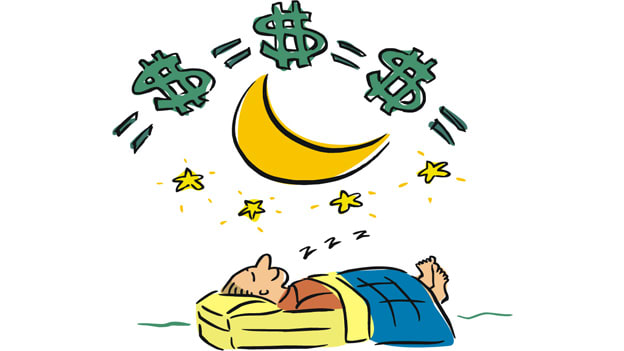Sleeping more is likely to increase your salary by 5%

Surprised?
We were too; when we learnt that one extra hour of sleep at night can probably result in a 5% annual increase in salary. According to a recent report, researchers found that sleeping less seems to have a detrimental impact on your earnings.
What is the report?
Researchers at Williams College in Massachusetts and the University of California in San Diego studied the time zones where sunsets vary from east to west. The study was set in USA, which has varying time zones, and the focus was on the zones where the sunset times were significantly different, from east to west. Data collected from fitness trackers was used to find what time people went to sleep after sunset and when they woke up.
Since there should be no other major practical difference between the workers of these time zones, other than the duration of their sleep at night, the information was used to estimate the nature and effect of relationship between sleep and salary. However, the researchers warn that factors other than sleep could also have affected the results.
What did they find?
Workers who worked in time zones where the sun sets earlier earned $1,570 more on average, annually. Further, the study found that this difference in wages can impact other components of the local economy. For example, the study calculated that a county with a one-hour earlier sunrise has a 6% higher home value, which translates to $7,900 to $8,800.
Through complex calculations and equations, the researchers were able to establish the positive impact of sleeping more on individual salary. However, before you reset your alarms, simply sleeping more is unlikely to directly increase your salary. Sufficient sleep at night will result in higher productivity at work, being more alter, scheduling your work better, and balancing other parts of your life well. Interplay of all these factors will surely, over time, result in an increase in wages.
However, if one thing that the study has established is, it is the fact that sleep is the biggest casualty of our work-lifestyle today. The fact that people with different sleep patterns and durations are earning variably means that their ability and productivity is evidently different. Researchers Matthew Gibson and Jeffery Shrader, who were leading the study, wrote in their paper, “These results suggest that sleep is a crucial determinant of wages, rivalling ability and human capital in importance.'
The Bottom-Line
With employers increasingly focussing on workplace wellness and happiness, this revelation comes at an opportune time. Although the validity of the study can be scrutinised, since it is based on an assumption, and economic, political and social factors also affect wages across geographies, one cannot argue with the importance of sleep in maintaining high productivity and working better. We have all been there; coming into office cranky and irritable, low on concentration, and exiting offices with a feeling of accomplishing nothing throughout the day, and most of the times, staying up late the previous night is a common nemesis to blame.
Although organisations are slowly realising that a fit and happy employee is their biggest asset, and programmes that work towards establishing work-life balance are in nascent stages, it is important to integrate such data of sleep durations, physical exercise, and food habits into such efforts. Wider studies and researchers, with reliable variables are needed to first understand how our lifestyles have changes, which will form the foundation of undoing the damage we are inflicting upon ourselves.











